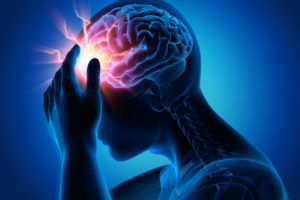Headaches are a common ailment, affecting millions worldwide. For some, it is an occasional nuisance; for others, a debilitating condition. Whether you experience tension headaches, migraines, or cluster headaches, understanding their nuances is crucial to finding relief. As anywhere else in the world, it is common for many people to suffer from headaches in Royal Palm Beach.
This guide will explore the different types of headaches, why they occur, and various treatment options available. We will also highlight how Advanced Medical in Royal Palm Beach can provide the expert care you need.
What are Headaches? An Overview
Generally speaking, a headache is a pain or discomfort in either the head or neck area. It is often a symptom of various medical conditions but can also occur independently. The pain can range from mild to severe and vary in duration.
There are primary and secondary types of headaches. Primary headaches are not linked to other medical conditions, while secondary headaches result from underlying health issues.
Understanding the nature of your headache is essential in seeking appropriate treatment. Not all headaches are the same, and identifying the type can help in selecting the right relief methods. Headaches can manifest in various forms, and being informed about their characteristics can alleviate anxiety about their occurrence.
Exploring Different Types of Headaches
There are over 150 types of headaches, but most fall into several major categories. Tension headaches are the most common type, often characterized by a dull, aching sensation and pressure around the forehead or back of the head. These can be triggered by everything from stress to poor posture to eye strain.
Migraines are more severe and can last from hours to days. They often come with symptoms like nausea, vomiting, and sensitivity to light or sound. Migraines may have genetic or environmental triggers, and managing them requires understanding these factors.
Cluster headaches are less common but intensely painful, often described as burning or piercing pain around one eye. They occur in groups or clusters, with periods of frequent attacks interspersed with remission phases. Identifying the type of headache you have is the first step toward finding effective relief and management strategies.
Why Do Headaches Occur? Unraveling the Mystery
The root causes of headaches are still being studied, but several factors can contribute to their onset. Genetics play a significant role, particularly in migraines, where family history can increase the likelihood of experiencing them. Headaches can also be triggered by environmental factors such as changes in the weather, your diet, or your sleep patterns.
Additionally, stress and tension are common culprits, especially for tension headaches. Your body’s response to stress can lead to muscle contraction. That, in turn, can result in pain. Hormonal changes, particularly in women, can also trigger headaches, making them more prevalent during menstrual cycles or menopause.
Understanding these triggers is crucial in preventing and managing headaches. By identifying and mitigating these factors, sufferers can reduce the frequency and severity of their headaches.
Common Treatment Options for Headaches
There are numerous treatment options available for managing headaches. Over-the-counter medications like ibuprofen or aspirin can relieve mild headaches. More severe cases, however, may require prescription medications. In either case, it is essential to consult with your healthcare provider, who can develop a tailored treatment plan.
In addition to medication, lifestyle changes can significantly impact headache management. Regular exercise, a balanced diet, and sufficient sleep can help prevent headaches. Stress management techniques like meditation, yoga, or deep-breathing exercises can also be beneficial.
Complementary therapies such as acupuncture, chiropractic care, or massage have been effective for some individuals. It is important that you explore various options and find what works best for you. Combining different approaches often yields the best results.
Treatment for Headaches and Migraines in Wellington, Florida
Advanced Medical in Royal Palm Beach offers comprehensive care for headache sufferers. Our team of specialists understands the complexities of headaches and provides personalized treatment plans to address individual needs. We offer a range of services, including diagnostic evaluations to determine the type and cause of your headaches.
Our approach combines medical treatments with lifestyle recommendations, ensuring a holistic path to relief. We also offer guidance on managing triggers and adopting preventive measures to reduce headache frequency. With our support, patients can achieve lasting relief and improved quality of life.
We prioritize patient education, which helps empower individuals to take control of their health. Our goal is to provide compassionate care that focuses on the root cause of headaches, not just their symptoms.
Relief from Headaches in Royal Palm Beach, FL
Headaches can significantly impact your quality of life, but they don’t have to control it. If you are seeking expert care to treat or manage your headaches, Advanced Medical is here to help.
Scheduling an appointment is easy and convenient. Simply call our office at (561) 434-1935 or, if you prefer, fill out our secure appointment request form, and we will get back to you promptly.
During your visit, we will conduct a thorough assessment and discuss your symptoms, triggers, and any previous treatments you have tried. Our team will work with you to develop a personalized treatment plan that fits your lifestyle and needs. We are committed to providing you with the highest quality care and support.
So, don’t suffer in silence—take the first step towards relief from headaches in Royal Palm Beach by reaching out to us today.











